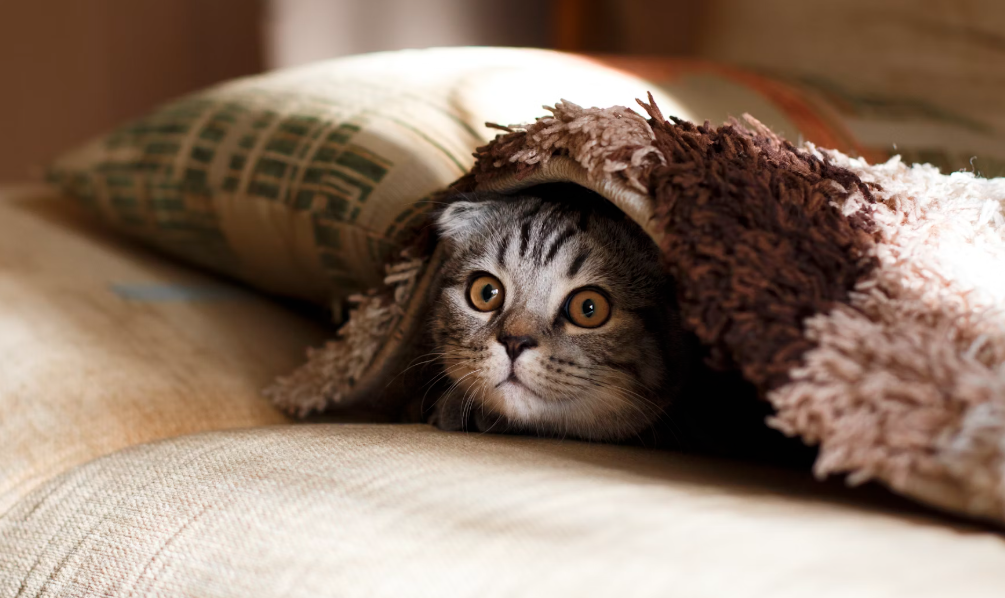Jeśli chcesz kupić produkty dla zwierząt z elastycznymi MOQ i konkurencyjnymi cenami i potrzebujesz szerokiej gamy kategorii, równie dobrze możesz spróbowaćZwiązek rynkowyŹródła globalne
, I
może połączyć Cię z setkami potencjalnych producentów. Platformy te pozwalają filtrować wyszukiwanie według lokalizacji, możliwości i rodzajów produktów, ułatwiając znalezienie odpowiednich dostawców. Odniosłem wielki sukces, aby dotrzeć do tych platform, a następnie zawęziłem moje opcje poprzez szczegółowe e -maile i rozmowy telefoniczne.
Targi i ekspozycje
Worki zawodowe są nieocenione w przypadku spotykania się z producentami produktów dla zwierząt domowych. Możesz bezpośrednio ocenić ich produkty, omawiać swoje potrzeby i negocjować oferty na miejscu. Rozważ uczestnictwo w wydarzeniach takich jak:Global Pet Expo(USA)Interrzoo(Niemcy)SuperZooWystawa Produktów Międzynarodowych i Akwarium Yiwu(Chiny)Zawsze zalecam uczestnictwo w targach, jeśli możesz - osobiście patrzenie na produkty jest znacznie bardziej skuteczne niż poleganie na zdjęciach online.
Ocena producentówPo krótkiej liście kilku producentów musisz je ocenić na podstawie kluczowych czynników, takich jakreferencje
| możliwości |
technologia |
. |
| Sprawdzanie poświadczeń i certyfikatów |
Poszukaj producentów, którzy posiadają certyfikaty, takie jak |
ISO 9001 |
| (Zarządzanie jakością) lub certyfikaty specyficzne dla produktu (np. ASTM lub CE dla zabawek dla zwierząt domowych). Certyfikaty dają pewność, że producent przestrzega standardów branżowych i utrzymuje kontrolę jakości. |
Ocena możliwości produkcyjnych i technologii |
Zapytaj o ich możliwości produkcyjne i |
| . Czy używają nowoczesnych maszyn? Czy w razie potrzeby mogą zwiększyć produkcję? Konieczne jest upewnienie się, że mogą zaspokoić Twoje potrzeby produkcyjne zarówno teraz, jak iw przyszłości. Odkryłem, że producenci, którzy inwestują w nowoczesne technologie, zwykle wytwarzają bardziej spójne produkty o wyższej jakości. |
Jakość i zgodność |
Zapewnienie przestrzegania standardów i przepisów bezpieczeństwa |
| Bezpieczeństwo powinno być Twoim najwyższym priorytetem przy opracowywaniu produktów PET. Zawsze upewnij się, że producenci przestrzegają międzynarodowych standardów bezpieczeństwa, takich jak |
(American Society for Testing and Materials) dla zabawek lub |
dla ogólnego bezpieczeństwa produktu. Poproś o raporty z testów bezpieczeństwa i certyfikaty zgodności przed złożeniem zamówienia. |
| Koszty i ceny |
Omawianie konsekwencji kosztów różnych opcji produkcyjnych |
Całkowity koszt produktu nie zależy tylko od ceny za jednostkę - obejmuje również |
| wysyłka |
obowiązki |
i potencjał |
| znaczniki |
. Zdobądź |
szczegółowy cytat |
| Od każdego producenta, który obejmuje te koszty, abyś mógł dokonać dokładnego porównania cen. Poproś ich o pełny podział modelu cenowego, aby upewnić się, że nie ma żadnych niespodzianek. |
Komunikacja i współpraca |
Znaczenie jasnych kanałów komunikacji |
| Skuteczna komunikacja ma kluczowe znaczenie w całym procesie produkcyjnym. Wykracza to poza omawianie cen i terminów - wiąże się to z upewnieniem się, że producent rozumie twoją wizję i może ją wykonać. Jeśli bariery językowe są problemem, rozważ korzystanie z usług tłumaczenia lub zatrudnienie |
łączność |
ułatwić komunikację. |
| Próbki i testy |
Rola prototypów w procesie rozwoju |
Prototypy to twoje pierwsze namacalne spojrzenie na produkt końcowy. Ściśle współpracuj z producentem, aby opracować prototyp, który spełnia Twoje standardy. Pamiętaj, aby dokładnie przetestować prototyp przed przejściem do produkcji na pełną skalę, ponieważ ten krok może zaoszczędzić na kosztownych błędach później. |
Logistyka i łańcuch dostaw
Biorąc pod uwagę lokalizację producenta i jego wpływ na logistykęLokalizacja twojego producenta wpływa na obaczasy realizacjiIkoszty wysyłki
. Jeśli to możliwe, wybierz producenta bliżej rynku docelowego, aby obniżyć koszty i poprawić czas dostawy. Znalazłem, że producenci znajdują się w miejscach takich jak
ChinyIndieCzęsto oferują niższe ceny, ale musisz uwzględnić długie czasy wysyłki i potencjalne opóźnienia celne.
- Sprawy prawne i umowneOpracowanie umów, które chronią Twoje interesy
- Umowy są niezbędne w każdym stosunkach produkcyjnych. Pamiętaj, aby współpracować z prawnikiem, który specjalizuje się w produkcji międzynarodowej w celu opracowania umowy, która obejmuje takie rzeczyOchrona własności intelektualnejOczekiwania jakościowerozstrzyganie sporu. Ta umowa będzie Twoim zabezpieczeniem podczas procesu produkcyjnego.Budowanie długoterminowych relacjiKorzyści z długoterminowych partnerstw z producentamiJedną z najcenniejszych rzeczy, które możesz zrobić
- zbudować długoterminowe relacje
- z producentem. Długoterminowe partnerstwa mogą prowadzić
- Lepsze ceny
- , bardziej niezawodna produkcja i głębsze zrozumienie potrzeb produktu. Może to również dać więcej miejsca na negocjowanie przyszłych zamówień i poprawę ogólnej wydajności.Wniosek
- Znalezienie odpowiedniego producenta produktów dla zwierząt jest procesem, który wymaga
- badania
- należytą staranność
- i jasne zrozumienie potrzeb biznesowych. Koncentrując się na praktycznych szczegółach i unikając pustych obietnic, możesz znaleźć partnera, który pomoże Twojej firmie rozwijać się. Nie spiesz się, aby ocenić wszystkie opcje i nie bój się negocjować. Twoja działalność produktów dla zwierząt domowych zasługuje na najlepsze, a odpowiedni producent może coś zmienić.:Negocjujesz z producentem A, aby obniżyć minimalną ilość zamówienia do 700 sztuk i utrzymać cenę na poziomie 0,75 USD. Ostatecznie wybierasz producenta A, ponieważ jego elastyczność i cena bardziej Ci odpowiadają.
- Potwierdź szczegóły:Podpisz umowę określającą terminy dostaw, warunki płatności i standardy jakości.
Zapewnienie standardów jakości
Jakość tonie podlegający negocjacjomw branży zoologicznej. Będziesz chciał współpracować z producentami, którzy stawiają bezpieczeństwo i kontrolę jakości na pierwszym miejscu. Poproś o referencje, sprawdź ich reputację i upewnij się, że spełniają standardy wymagane dla produktów dla zwierząt. Na przykład poszukaj certyfikatów, takich jakISOrozstrzyganie sporuASTM(do zabawek) lubEN71(dla bezpieczeństwa produktów dla dzieci). Zawsze proś o raporty z testów i certyfikaty bezpieczeństwa przed podjęciem dalszych działań.
Badanie potencjalnych producentów produktów dla zwierząt domowych
Gdy już wiesz, czego szukasz i jakiego producenta potrzebujesz, czas rozpocząć poszukiwania. Istnieje kilka narzędzi i metod, których możesz użyć, aby znaleźć najlepszego producenta.
Oczekiwania jakościowerozstrzyganie sporuKorzyści z długoterminowych partnerstw z producentami
rozstrzyganie sporu
ASTMEN71
rozstrzyganie sporu
rozstrzyganie sporu
rozstrzyganie sporu
Jedną z najcenniejszych rzeczy, które możesz zrobić
 Kobiety aktywne odzież
Kobiety aktywne odzież
 Zwiedź aktywny mężczyzn
Zwiedź aktywny mężczyzn
 Men Outdoor Apparel
Men Outdoor Apparel
 Kobiety odzież na świeżym powietrzu
Kobiety odzież na świeżym powietrzu
 Sporty drużynowe
Sporty drużynowe
 Sports Shaper & Sports Bezpieczeństwo
Sports Shaper & Sports Bezpieczeństwo
 Kemping i wędrówki
Kemping i wędrówki
 Boks Fighting & Dance Gymnastics
Boks Fighting & Dance Gymnastics
 Pokój gier i podwórko
Pokój gier i podwórko
 Pływanie i plaża
Pływanie i plaża
 Akcesoria sportowe i zewnętrzne
Akcesoria sportowe i zewnętrzne
 Kolarstwo
Kolarstwo
 Sporty zimowe
Sporty zimowe
 Sport rakietowy
Sport rakietowy
 Sporty wodne
Sporty wodne
 Polowanie
Polowanie
 Zdatność
Zdatność
 Wędkarstwo
Wędkarstwo












































